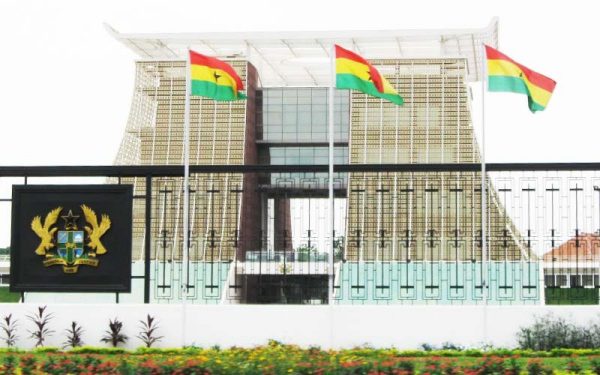The Constitution Review Consultative Committee has suggested that the President pay taxes on his income and emoluments as an example to the rest of the country.
It has consequently proposed the repeal of Article 68 (5) of the constitution, which imposes a duty on the President to pay taxes.
The Committee stated that once completed, it will reflect the idea of equality before the law and adhere to the rule of law.
Inusah Fuseini, a former Member of Parliament for Tamale Central, revealed the committee’s suggestions during stakeholder talks for a future constitutional review.
“They say that it flouts equity rules, where the President receives money from the public purse and does not pay tax on his emoluments. They recommended an amendment to the Constitution to allow the President to pay tax on his earnings,” he said.
Aside from this recommendation, the Committee has called for a cap to be placed on the number of MPs in Parliament.
The committee believes that such a move would see consequential amendments to Article 47 to ensure that Ghana is divided into as many constituencies for the purpose of election of MPs as the Electoral Commission (EC) may prescribe how so but the number of constituencies shall not exceed 277.
The report was put together by a 12-member committee chaired by Clara Kasser-Tee, a lecturer from the University of Ghana Law School.
The committee, which was inaugurated by the Minister of Parliament Affairs, Osei Kyei-Mensah-Bonsu, on April 28, 2023, was tasked to review the 2011 report of the Constitution Review Committee.
Per the report, which was presented at a stakeholders’ consultations for the possible review of the 1992 Constitution, said “The amendment of this provision will trigger the necessary consequential amendment in the income tax law of the country.”
Article 68 (5), which borders on the conditions of Office of the President, exempts the President from the payment of income tax.
It stipulates that: “The salary, allowances, facilities, pensions and gratuity referred to in clauses (3) and (4) shall be exempt from tax.”
The objective of the meeting was to afford the stakeholders the opportunity to review the work of the consultative committee in respect of the 1992 Constitution, build consensus and nurture ownership in the constitutional review process.
The output of the event is the report that would be used as the foundation for a Sovereign National Conference to be held across the country to get the by-ins of the citizens for a possible holistic or amendment of the 1992 Constitution as stakeholders might determine.
The members are representatives from various institutions. They are a Senior Fellow at the Africa Centre for Economic Transformation, Professor John Asafu-Adjaye; the Chairman of the National Media Commission, Yaw Boadu-Ayeboafo; Tweneboah Kodua Dickson from the Ministry of Parliamentary Affairs, and a Justice of the Supreme Court, Justice Yonny Kulendi.
The rest are John Nwodzah from the Audit Service, Anthony Forson Jr. from the Ghana Bar Association, Afred Tuah-Yeboah from the Ministry of Justice and the Attorney-General’s Department, Mercy Larbi from the Commission on Human Rights and Administrative Justice and Nana Tawiah Okyir from the Parliamentary Service Board.
They reviewed submissions, proposals and reports on various institutional review platforms such as Kwame Nkrumah University of Science and Technology, Institute of Economic Affairs, University of Ghana School of Law, University of Professional Studies, Accra, and the Ghana Institute of Management and Public Administration.
The event, which was held on the theme “Building consensus and promoting ownership for the review of the Constitution”, was organised by the Ministry of Parliamentary Affairs.
Emoluments for article 71 holders
Touching on the determination of the conditions of service of some public office holders (article 71), the committee recommended that the emoluments of article 71 must be determined pursuant to a pre-determined formula.
This pre-determined formula, it said, was to be set by an independent emolument committee (IEC) composed of institutional representation such as the Public Services Commission, the Trades Union Congress, the Ministry of Finance, the Audit Service and the Fair Wages and Salaries Commission.
“The mandate of this IEC shall be to prescribe an emolument formula for the emoluments of article 71 holders.
“The emoluments of article 71 shall thereafter be determined pursuant to this formula, without the need to set up any further committees in the future,” the report said.
The institutions shall nominate their representatives and the President shall appoint them.
The report said the emoluments of the IEC shall be similar to sitting allowances applicable to public boards and committees, and the IEC was to be dissolved after setting the pre-determined formula, which shall be managed by the Fair Wages and Salaries Commission.
“This avoids the continuous setting up of committees to determine the emoluments of article 71 holders which is another charge on the public purse,” it said.

